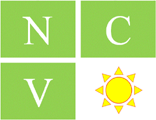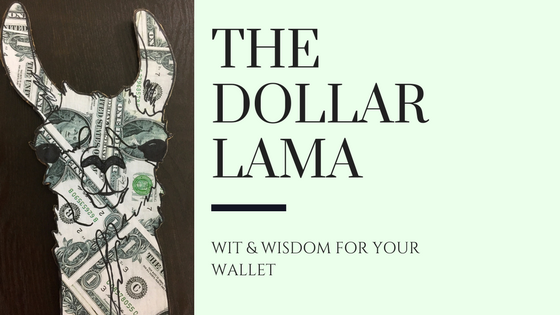Well, 2021 has started off with a bang. Today is January 2nd and I’m getting reports that stimulus funds are hitting bank accounts across the nation! How about that for speed? The most recent stimulus bill was only passed and signed into law on December 23rd and some of us already have the cash in hand. It’s very surprising to me, especially since it took months for Congress to actually agree on and pass the legislation. Even so, it looks like stimulus funds are finally going out and, for some people, not a moment too soon.
For More In Depth Information
If you want to more personal finance tips and strategies, including 5 Student Loan Debt Payment Tips, enter your information and click on "Learn More!"
Check your email for FREE gift details!
Now that the bill has been signed, the fun really starts. There are all kinds of goodies in there that we could talk about and debate for a year’s worth of Sundays. However, we would do better to start by taking a quick look at the highlights that are in the legislation, which is 5,500 pages long, by the way! Okay, in all fairness it’s long because the stimulus legislation was lumped in with another appropriations bill. Still, can you say “holy encyclopedia, Batman!”
To begin with, basically every single adult gets a $600 stimulus payment, as long as you are making less than $75,000 a year. You should also get $600 per qualifying child, too. There was some argument over an increase in the payment amount but, it looks like that just isn’t going to happen. I, for one, am less surprised about that than I am the shear speed of delivery on the funds.
Next, unemployment benefits will include an additional $300 per week for 10 weeks. Again, I’m not surprised about this since continuing unemployment has been a huge issue in stimulus legislation negotiations. I think it was inevitable that this funding made it into the final legislation.
Testing funding has been included in this bill, too. There is $69 billion set aside in this bill to fund the roll out of the vaccine, continue testing and contact tracing. That means that you should not have to pay for the Covid-19 vaccine. This part of the bill will likely be the most important one, in the long run. Hopefully, it will allow folks to get back to work so that the economy can begin moving forward again.
Money for schools has also been included in this legislation. There is $54 billion set aside for public schools who are facing economic shortfalls because of a drop in income and sales tax revenue. Schools have been stretched even more thin because of the need for expanded infrastructure so I hope this funding will go a long way toward making sure every student has access to education.
This brings me to broadband infrastructure funding. The legislation also sets aside money to expand and update our information technology access. This twin-demic has revealed many gaps, including a gap in access to broadband internet for low-income folks. The legislation includes $7 billion to beef up the broadband infrastructure and provide financial assistance for low-income families so they can access the internet. Getting online with ease is a necessary thing in this day and age, something we’ve learned the hard way this year.
Rental assistance is also in this legislation. This is a very important thing to include since the loss of jobs means evictions for non-payment of rent. The bill sets aside $25 billion for states to distribute to people who may be facing eviction or to help with utilities and other living expenses. It has also extended the moratorium on evictions by 30 days.
There is money set aside in this bill to increase nutritional assistance benefits, too. If you, or someone you know, needs access to these programs, please encourage them to apply. I know we all are seeing lines of cars waiting for food, either on the news or in our towns and communities. If you are fortunate enough to have what you need, please consider donating to food banks and pantries near you.
Finally, if you are a small business owner, the Paycheck Protection Program has been extended. If you held out and waited to see if things would pick up and you are now finding yourself in a lurch, you may want to check out the Paycheck Protection Program to see if it can help keep you going. Many people have used this program to get over the hump and keep their heads above water. It may be just the lifeline you need to keep your business running until things begin to get back to something resembling normal.
So, that’s just a very short list of what is in the Consolidated Appropriations Act or HR 133, that just passed Congress and was signed into law. Now, what exactly does that mean for you? Good question! Here is a list of a few things you should know about the new stimulus bill, right now:
- First of all, the funds must be sent by 1/15/21. After that, the IRS and the US Treasury must stop sending out funds. So, make sure you have updated your information on the IRS portal if you haven’t already. To “get your payment” click here.
- You should not be taxed on stimulus funds. I’ve seen quite a few questions about this and I think some folks are mistaking this for the payroll tax suspension that was signed late last year. If your payroll taxes were suspended because of that Executive Order, you will have to pay that back by April 30th of this year. That will probably be deducted from your paycheck starting now, unfortunately. Happy New Year, here’s a smaller paycheck.
- You might be eligible for a recovery rebate on your 2020 tax return if you should have received the first round of stimulus fund and did not receive the full amount or any at all. To learn more about the rebate, check out: https://www.irs.gov/coronavirus/economic-impact-payments
- If you are a small business owner with a Paycheck Protection Program loan of $150,000 or less, it may be easier for you to apply for forgiveness. Don’t wait to look into it and make sure you talk to a tax professional or attorney who is authorized by the US Treasury Department to give advice about Paycheck Protection Program loans.
- Student loan relief has been extended until January 31st by the federal government. For federal student loans only, of course. Be prepared to resume making payments by the end of the month!
So, there you have it. A quick run down of the contents of the latest round of stimulus legislation. I hope you found this information helpful. I truly hope this legislation will help the millions of Americans who are struggling financially because of this twin-demic. I believe that communicating this information is an important part of helping each other survive this situation as best we possibly can. The other things we can do are donate, support your local business and just be kind to each other. Hang in there, my friends. Better days are coming!
P.S. Make sure you check out my online courses, books and resources, too! Investing in your money management education is an investment in yourself. That’s the best investment you’ll ever make, I guarantee it!. Don’t forget my weekly Facebook live videos on Facebook.com/newcashview, Instagram @joyalfordbrand and on my YouTube channel NCVTV. You can catch me on Thursday evenings between 8:00 and 9:00 (Eastern Standard time), for my weekly NCVTV episode. They are packed full of useful and entertaining money management information! If you’ve missed any NCVTV episodes, you can see the latest on newcashview.com or you can check out my YouTube channel and get caught up! You can get there by clicking here. Remember, like and share the NCVTV videos on Facebook and all your social media platforms, so others can benefit from them, too!

